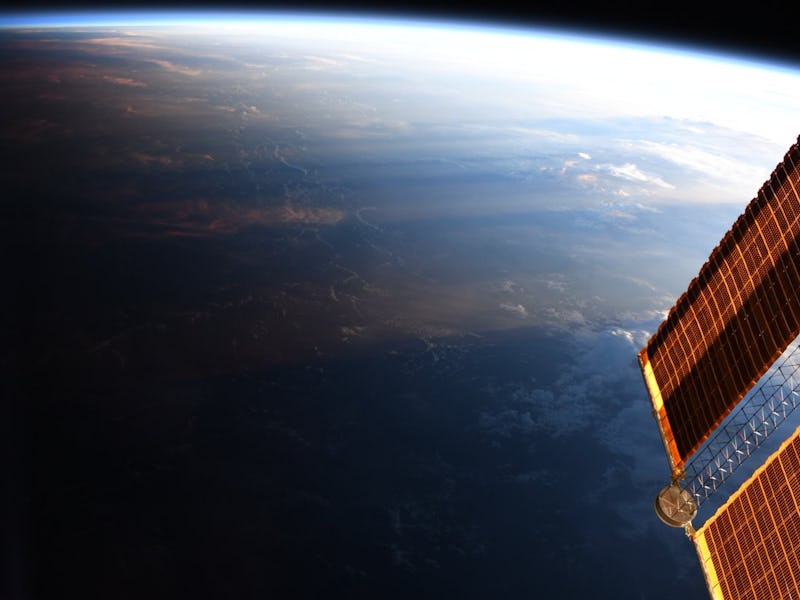Climate Change is Triggering an Unexpected and Fundamental Planetary Change
A surprising interplay between ice melt and physics means Earth’s days are getting longer

It’s well-established that climate change is altering a lot about Earth, from the intensity of extreme weather to nutrient cycles and ecosystems and even the risk of animal attacks. But new research indicates that something even more fundamental is shifting as climate change progresses: the length of a day.
Ice melt spurred by human-caused global warming is modifying the mass distribution of our planet, ultimately slowing Earth’s rotation and lengthening the 24-hour day, according to a study published July 15 in the journal Proceedings of the National Academy of Sciences. Previous research has made similar findings, but the new study suggests climate change is having a larger impact on day length than previously thought.
If rates of fossil fuel use and greenhouse gas emissions continue to increase in a commonly referenced high warming scenario known as RCP 8.5, then climate change could become a larger influence on Earth’s rotation and day length than the moon, per the new findings.
Many factors have a small but significant effect on day length, including movement of magma at Earth’s liquid core, wind fluctuations, and the flow of water on our planet’s surface. As is, the moon creates tides that produce back-and-forth friction that slows our planet’s spin. On the scale of geological time, this lunar effect has been the biggest contributor to changes in day length over our planet’s history. Yet human-caused global warming is catching up.
Earth is not a perfect sphere, it is “oblate”, meaning it is slightly compressed along the equator in a subtle 3-D oval shape. As Greenland and Antarctic ice caps melt, more water and mass moves from the poles towards the equator. This effectively flattens Earth further, making the middle even wider and heftier than the top and bottom, slightly slowing its rotation due to increased inertia. “It’s like when a figure skater does a pirouette, first holding her arms close to her body and then stretching them out,” senior study researcher Benedikt Soja, a professor of space geodesy at ETH Zurich in Switzerland, said in a press statement. With arms outstretched, the figure skater would slow down, and two centuries of observational data and models suggest our planet is too.
Researchers calculated ice melt and accompanying changes in Earth’s oblateness using observational data collected since 1976 and modeled reconstructions and projections from 1900 to 2100. Through the 20th century, they found that climate change lengthened the day between 0.3 and 1.0 milliseconds. Since 2000, however, the rate of climate change-caused day lengthening has accelerated to about 1.33 milliseconds per century. Under the RCP 8.5 high emissions scenario, the scientists predict that the rate of day lengthening would double to approximately 2.62 milliseconds per century, officially surpassing lunar tidal friction as the most significant long-term force acting on Earth’s day length.
A couple of milliseconds per century may sound like crumbs in comparison to the universal pie, but it can add up to days that are hours longer over billions of years. In the shorter-term, the climate-induced shifts impact precise time-keeping, which is used to maintain accurate and smooth GPS navigation, global communication, power grids, and financial systems. Space exploration, too, could be affected by the change, as even small deviations in rotation and position on Earth can magnify to big miscalculations when it comes to navigating and correcting landing a probe over vast distances elsewhere in the solar system.
A related study from the same group of researchers published July 12 assessed not just rotation speed, but also the movement and location of Earth’s axis. Soja and his colleagues found that the same water and mass redistribution caused by melting polar ice caps is additionally shifting the planet’s axis of rotation — potentially by a few meters per century.
There are limitations to both studies. For example, RCP 8.5 is generally considered an outdated and unlikely projection for future warming and modeled data comes with some level of uncertainty. Yet still, the pair of scientific papers demonstrates just how deeply the consequences of climate change reverberate.
“We humans have a greater impact on our planet than we realize,” Soja said in the press release. “This naturally places great responsibility on us for the future of our planet.”